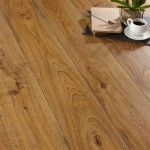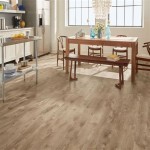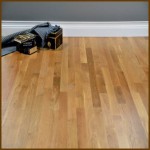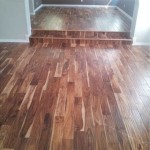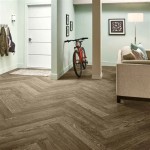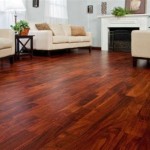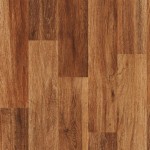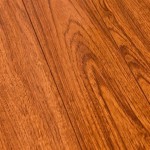Hardwood Flooring Thickness: An Essential Guide for Informed Decisions
Hardwood flooring, renowned for its timeless beauty and durability, offers homeowners a vast selection of choices when it comes to thickness. Understanding the significance of flooring thickness is crucial to ensuring the longevity and performance of your investment.
What is Hardwood Flooring Thickness?
Hardwood flooring thickness is measured in inches or millimeters and refers to the vertical distance from the top surface to the bottom of the planks. It plays a vital role in determining the stability, durability, and moisture resistance of the flooring.
Why is Thickness Important?
The thickness of hardwood flooring impacts several key aspects:
- Stability: Thicker planks are less prone to warping, buckling, and expansion caused by environmental factors like temperature and humidity fluctuations.
- Durability: Thicker planks can withstand higher levels of wear and tear, making them ideal for high-traffic areas.
- Moisture Resistance: Thicker planks provide better resistance to moisture penetration, reducing the risk of water damage in humid environments.
Thickness Options
Hardwood flooring is typically available in three main thickness categories:
- Thin (<3/4 inch): Ideal for installing over existing subfloors or in applications where minimal height clearance is required.
- Standard (3/4 inch): The most common thickness, offering a balance between stability, durability, and cost.
- Thick (over 3/4 inch): Provides exceptional stability, durability, and sound insulation, but requires more installation time and cost.
Choosing the Right Thickness
The optimal thickness for your hardwood flooring depends on several factors:
- Usage and Traffic: High-traffic areas require thicker planks to handle the increased wear and tear.
- Subfloor Conditions: Uneven or weak subfloors may necessitate thicker planks for proper leveling and support.
- Climate: In humid climates, thicker planks offer better moisture resistance.
- Budget: Thicker planks typically cost more than thinner ones.
Conclusion
Hardwood flooring thickness is a crucial consideration that influences the performance and longevity of your flooring. By understanding the different thickness options and their implications, you can make an informed decision that meets the specific needs of your home and lifestyle.

Engineered Wood Flooring Size Guide Bvg

Solid Wood Flooring Vs Engineered

5 Proven Hardwood Flooring Thickness Categories Easiklip Floors

Solid Wood Flooring Thickness Guide And Beyond Blog

Our Thick 6mm Wear Layer Engineered Wood Flooring Is Better

The Ideal Hardwood Floor Thickness For Homeowners

How Thick Should Engineered Wood Flooring Be And Beyond Blog

How Thick Is Hardwood Flooring A Thickness Guide Reallyfloors America S Est

3 4 Inch Thick Engineered Baltic Birch Ply 5 8 Mm Wear Layer

3 Layer T G Engineered Flooring Thickness 15 Mm Coswick Com
Related Posts

